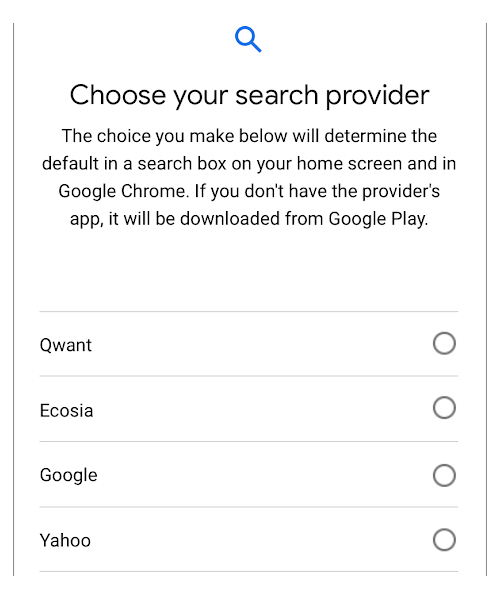
Google is the giant on the web. And at the same time, it also operates Android, the most popular mobile operating system.
For Android users in Europe, Google has a closed auction where search engines can bid to become the default search provider. This method is seen as a "monopolistic behavior", according to Ecosia, a German-based search engine that dedicates its profit for planting trees.
Saying that it won't take part in Google's auction, the company called the auction "unethical" and "anti-competitive", and argued that the move essentially limits user options.
Ecosia also said that search engines driven by a specific purpose besides profits, like itself, or others that focus on privacy, like DuckDuckGo, won't be able to bid competitively in the auction.
According to Ecosia’s CEO and founder Christian Kroll in a blog post:
"It is unethical for a company with a dominant market position like Google to discriminate access to it. Google's attempt to auction access rights to Android is an insult to the European Commission and to the principle of equality in front of the law."
"Alternative search engines that focus on privacy or specific causes are unlikely to be able to competitively bid in this suggested auction set-up."
While Android has already allowed users to manually change the default browser and search engine of their devices at any time, the move that presents users with only limited alternatives during the device setup could suggest that those are the only options available to them.

Google's move to provide the closed auction for search engines started back in August 2019, as a response to the $5 billion fine issued to the company in 2018 by the European Union's antitrust regulators, for the way Google bundled its services to Android, effectively forcing phone manufacturers to pre-install certain Google apps to gain access to others.
At the time, Google announced an overhaul to its Android licensing model in Europe, and earlier this 2019, Google suggested alternative browser and search engines for Android users, despite Chrome and Google Search were still enabled as default.
Search engine companies that want to participate in the auction, must apply for inclusion through a bidding process to become one of alternative choices to Google Search.
"This is really disappointing news — Ecosia is a not-for-profit search engine, and we use our revenue to plant trees in areas affected by deforestation or desertification, not to get into bidding wars," said Ecosia’s CEO Christian Kroll said at the time.
"If we choose to enter an auction and pay Google for the privilege of being a search engine option on Android, this will potentially be at the expense of millions of trees we could otherwise have planted."
In the following days, Gabriel Weinberg, founder and CEO of privacy-focused search engine DuckDuckGo, also said that he is against this move from Google, saying that the limited slots only limits users' option, suggesting that the move would only help Google profit at the expense of its competitors.